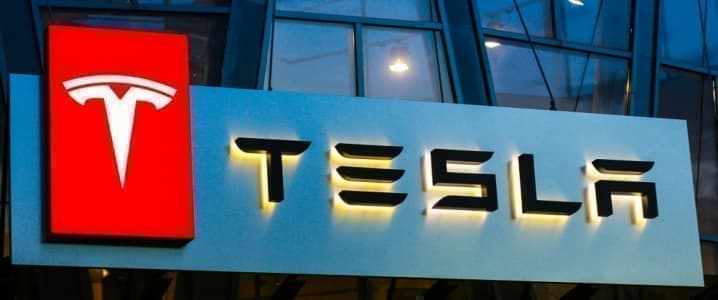While new vehicle sales — including new energy/electric vehicles — continued to see a downward slide in November, Tesla broke that cycle with a 14-fold gain in new-vehicle registrations.
Model 3 is looking good right as the company prepares to begin deliveries from its Shanghai factory. Registrations of Tesla vehicles climbed to a five-month high of 5,597 in November, compared with 393 vehicles sold a year earlier. The China-built Model 3s are set to start at about $50,000, slightly cheaper than imported versions. Tesla thinks it can lower that price by 20 percent or more next year as it starts using local components and parts, reducing costs.
There’s much at stake for Tesla as China accounts for about half of the world’s electric-vehicle sales — and with the company seeing the country becoming its largest global market after the US. The electric carmaker needs to see another burgeoning market as EV tax incentives will be going away soon in the US for Tesla and other makers.
New vehicle sales plunged in November by 43.7 percent on year to 95,000 units, according to the China Association of Automobile Manufacturers (CAAM). That was right after October saw one of the fastest declines of the year with a 45 percent drop year over year.
The rapid growth days of China’s economy ended this year, with new vehicle sales taking a big hit as consumers have put off their years-long buying binge. EVs are softening as well, as the Chinese government cuts back on its generous subsidies attracting manufacturers to build and consumers to purchase new energy vehicles.
Tesla is counting on China, with almost all of its new vehicle deliveries being highly dependent on the US market. Tesla’s presence in Europe won’t be going away, but it’s been a slower market to crack with strong local competition in place. Market analysts expect China to return to economic and new vehicle sales growth, though 2020 should continue to see a soft market. Related: New England Natural Gas Prices Hit Two Year High
Local investors in China seem to be impressed with where Tesla is going, as China’s slowdown and the trade war appear to have less effect on the company. CEO Elon Musk and team are securing funding for the Shanghai plant, winning over a new 10 billion yuan ($1.4 billion), five-year loan facility. The interest rate will be pegged at 90 percent of China’s one-year benchmark interest rate — a rate that China banks offer to their best clients.
Tesla shares rose for a fifth consecutive day on Friday, opening up by as much as 2.2 percent to $413, a new intraday record. Shareholders seem to be pleased with seeing Tesla poised to circumvent the US/China trade war, and the steep tariffs China has always placed on foreign manufacturers importing products into their market.
Investors want to know when Tesla will be able to get the Shanghai plant running at full capacity, but that’s yet to become clear.
Fears that China would raise tariffs on U.S.-made cars in December likely helped bolster Tesla sales, according to Bloomberg Intelligence auto analyst Steve Man. That threat did subside last week after the two countries agreed on the first phase of a broader trade agreement — but it’s still very early in that deal-making scenario.
Tesla has been subject to China’s 25 percent import tariff, which has made winning over Chinese customers tough in a market where “new energy vehicle” subsidies have made locally manufactured EVs much cheaper than the Model 3.
The new Tesla plant will be the first wholly foreign-owned car manufacturing facility in China. That came from the national government wanting to open up its car market, and from the Shanghai local government throwing its support behind Tesla. Related: Why Hasn’t Hydrogen Gone Mainstream?
The 10 billion yuan five-year loan facility for the Shanghai plant will be used in part to roll over an existing loan, according to sources familiar with the matter. China Construction Bank, Agricultural Bank of China, Industrial and Commercial Bank of China, and Shanghai Pudong Development Bank are among the backers, one source with direct knowledge said.
Earlier this year, Chinese banks offered Tesla a 12-month facility up to 3.5 billion yuan ($499.1 million) debt, which is due to be repaid on March 4, 2020, according to a Tesla filing with the US Securities and Exchange Commission.
The new loan will be pegged at 90 percent of China’s one-year benchmark interest rate, a source said. It will be the second time this offer has been made, following the initial 3.5 billion yuan, and reflects the fact that investors are seeing Tesla in a very bright light at the moment.
By John LeSage for Oilprice.com
More Top Reads From Oilprice.com:
- What Will The Average Oil Price Be In 2020?
- The 10 Most Important Oil Market Trends For 2020
- Is This The Beginning Of A Shale Crisis?


















